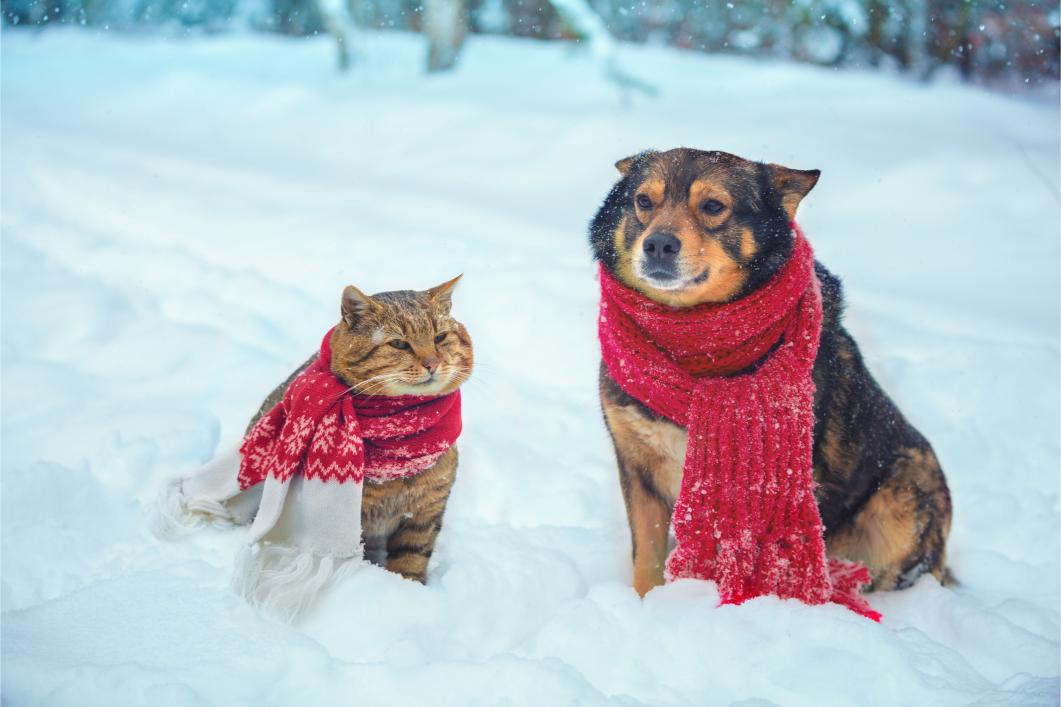Winter Pet Care

Every season has its own set of potential hazards and challenges to work through. While the crunch of new snow can be delightful, there is a long list of weather-related hurdles to be prepared for during the winter. With our tips, you and your pet can both survive and enjoy winters in Akron, Ohio.
Winter Pet Care
If it’s too cold for you to be outside, it’s generally too cold for your pet. The exceptions to this rule might be huskies or other thick-coated large breeds). Off-set the chill factor by providing your pet with insulating and waterproof-clothing and footwear. Limit their time outside if temperatures dip below freezing, and supervise them when in the backyard. Similar to heat stroke risks in summer, do not leave your pet alone inside a parked car during winter. Young, immunocompromised animals and senior pets can feel the effects more.
The signs of hypothermia include pale gums, shallow breathing, and lethargy. Be careful when outside with your pet, and stay far from partially frozen streams, lakes, and river beds.
Check Their Paws
If your pet does walk around the neighborhood or elsewhere without protective shoes or boots, be sure to rinse off paws in lukewarm water as soon as you return home. Chemical deicers and certain snow melts can cause problems to the skin on and around the paws. If they step in a puddle contaminated with antifreeze they might lick at their paws, exposing them to possible antifreeze poisoning.
Ethylene glycol, the toxin found in antifreeze, should be stored properly and any leaks must be addressed promptly. This can trigger a real, serious need for emergency veterinary care. Please seek help immediately if you know or suspect your pet consumed antifreeze or other winter poisons like rodenticides, hard/foot warmers, and de-icers.
Keep It Warm
Pets seek out heat sources in all ways imaginable. Whether it’s laying by the fire, on top of an electric blanket, near a space heater, or even next to the engine under the hood of the car, pets and heat sources don’t always mix. Be sure to closely supervise your pet anytime they are near fire or other heat sources, and tap the hood of your car before you start the engine.
Help your pet stay warm with a cozy self-warming bed that is set up away from doors, windows, and drafts.
Nutrition
Many pets need more calories to maintain internal temperature during the cold winter months. However, with fewer opportunities to exercise, it is imperative to watch their portion sizes closely. Also, a pet’s thirst drive can change in colder conditions. Without adequate water intake, they can end up feeling the effects of the winter even more sharply.
We can help you with winter pet care, nutritional needs, and address any questions about their winter lifestyle, indoor environment, and any behavior needs. Please call us at (330) 665-5915 with any questions or concerns about your pet’s health, safety and comfort this winter. Our team at The Gentle Vet is always here to help.
